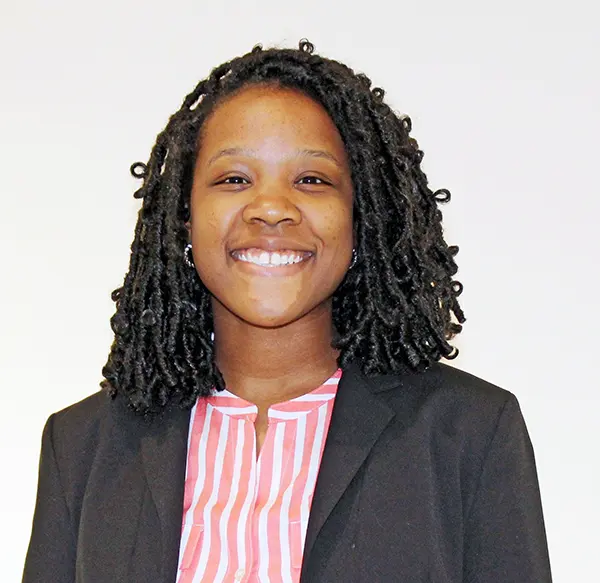ORISE fellow at U.S. Army Medical Research Institute of Chemical Defense shares her journey to success
Meet Zoe Vaughn
Zoe Vaughn, Ph.D., describes her professional journey as linear. Despite its difficulty, her road to success has been mostly straightforward. Her love for chemistry sprouted in high school and flourished with every song and activity her teacher created for each lesson. Though her love for chemistry was obvious, her path wasn’t. After being denied opportunities for programs that would ensure her early medical school acceptance, Vaughn pivoted to pharmacy. With one slight shift of focus, she found an interest in the drug discovery and development process and changed her major to chemistry with a minor in medicinal chemistry at the University at Buffalo. As an undergraduate, Vaughn conducted research in two labs focusing on three separate projects before pursuing a Ph.D. in pharmaceutical science at the University of Pittsburgh, contributing research toward drug discovery for acute kidney injury.

Zoe Vaughn, Ph.D., has found success in dreaming big and accepting rejection as redirection. (Photo Credit: Zoe Vaughn)
While looking for a postdoctoral opportunity, Vaughn stumbled upon an Oak Ridge Institute for Science and Education (ORISE) opportunity with the U.S. Army Medical Research Institute of Chemical Defense (USAMRICD). She was accepted as the only postdoc in the institute at the time and placed in the Medical Toxicology Research Division.
USAMRICD is the U.S. Department of Defense’s lead laboratory for medical chemical defense research. As a subordinate element of the U.S. Army Medical Development and Materiel Command, the institute conducts research for development of medical countermeasures to treat exposure to various chemical threat agents for protection of soldiers and civilians.
Vaughn’s research project focuses on organophosphate (OP) nerve agents that act through inhibition of acetylcholinesterase (AChE) at the active site of the enzyme. This reaction leads to acetylcholine buildup, which can ultimately cause excessive secretions, respiratory difficulty, seizures and muscle paralysis throughout the body. Currently, some small medical countermeasures reactivate AChE by displacing the OP nerve agent from the active site. A non-oxime, 4-amino-2-((diethylamino)methyl) phenol (ADOC) hit compound was found to possess reactivation potential through a modified mechanism of action.
“The majority of my postdoc has been to perform traditional medicinal chemistry to optimize the drug profile of ADOC by systematic synthesis of multiple analogs, followed by initial screening for reactivation ability against an in vitro multi-agent panel,” she said. “Over the past year, I have been able to add to the structure-activity relationship of ADOC to help inform further investigations.”
The USAMRICD is one of the only American labs that have access to nerve agents, giving compounds tested here a higher chance of working for humans down the line. With AChE inhibition being something the average American can be exposed to through pesticides, Vaughn’s research to find a reactivator of the acetylcholinesterase could help average Americans and the military.
A typical day for Vaughn involves continuing or starting new experiments, preparing and writing new proposals or current research, staying up to date with meetings and ending the day with more synthesis.
“My favorite parts of the program include the scientific freedom and the ability to dream up new and innovative ideas to be implemented into the institute,” she said. “While sometimes it is difficult to get ideas off the ground, the people in the institute are always willing to help you try and push it forward.”
Through her ORISE fellowship at USAMRICD, Vaughn has not only improved her research skills but also gained experience in grant writing.
The experience has been given her a new perspective on potential career goals. After her fellowship, she hopes to become a principal investigator of her own laboratory group within the governmental or academic space.
“(This experience) has benefited me greatly to find a place to land and grow as a person and really have the time to figure out what my next career move is, she said. “I have appreciated the many opportunities that I have been able to participate in that have continued to sharpen me as a person and scientist.”

